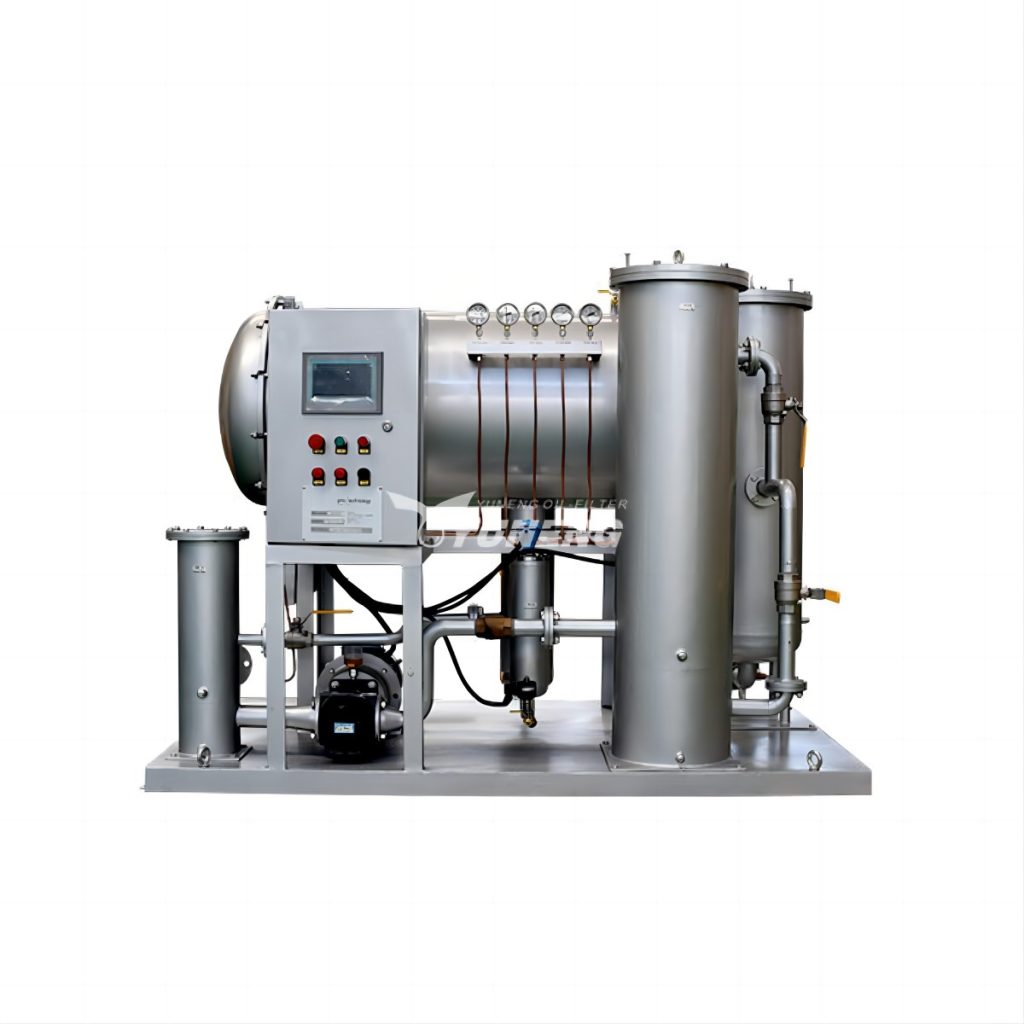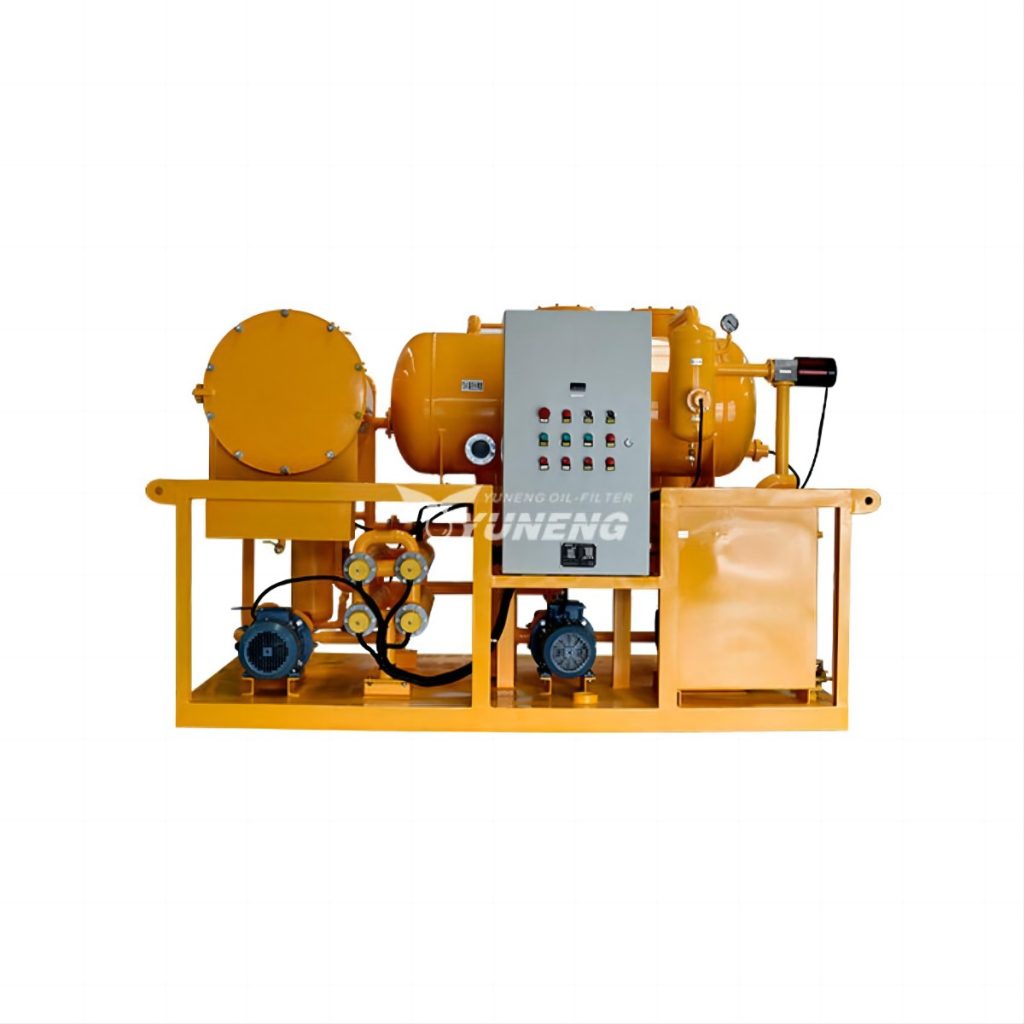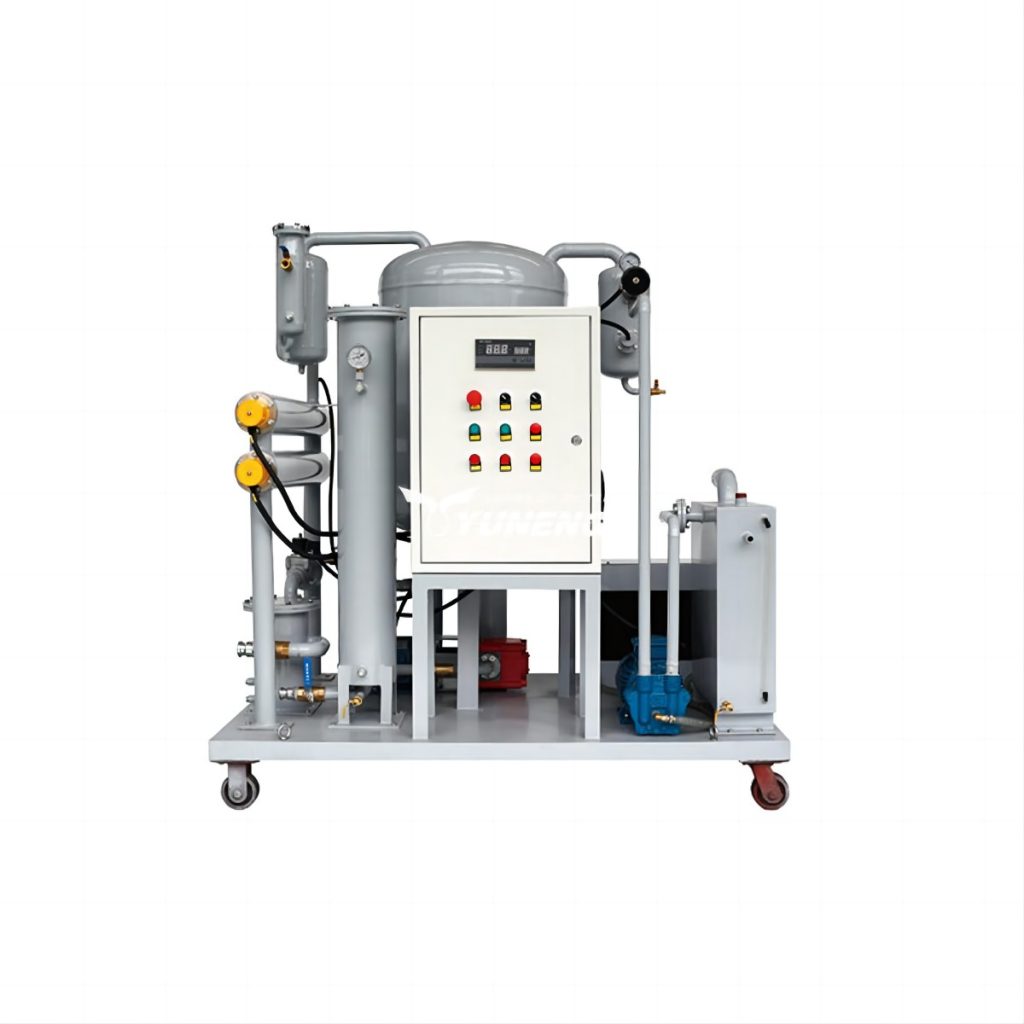Lubrication Oil Purifier vs Traditional Filtration: Which is More Effective?
Industrial machinery and engines rely on clean oil for optimal operation, but contaminants like dirt, water, and metal particles degrade its quality over time. To combat this issue, businesses use various oil filtration systems–but not all methods provide equal results.
Filtration has long been the go-to solution, while modern lubrication oil purifiers now provide advanced cleaning capabilities. So which one is more effective? We will explore both options to determine which is the most ideal fit for you.
Table of Contents
Exploring Traditional Lubrication Oil Filtration Methods
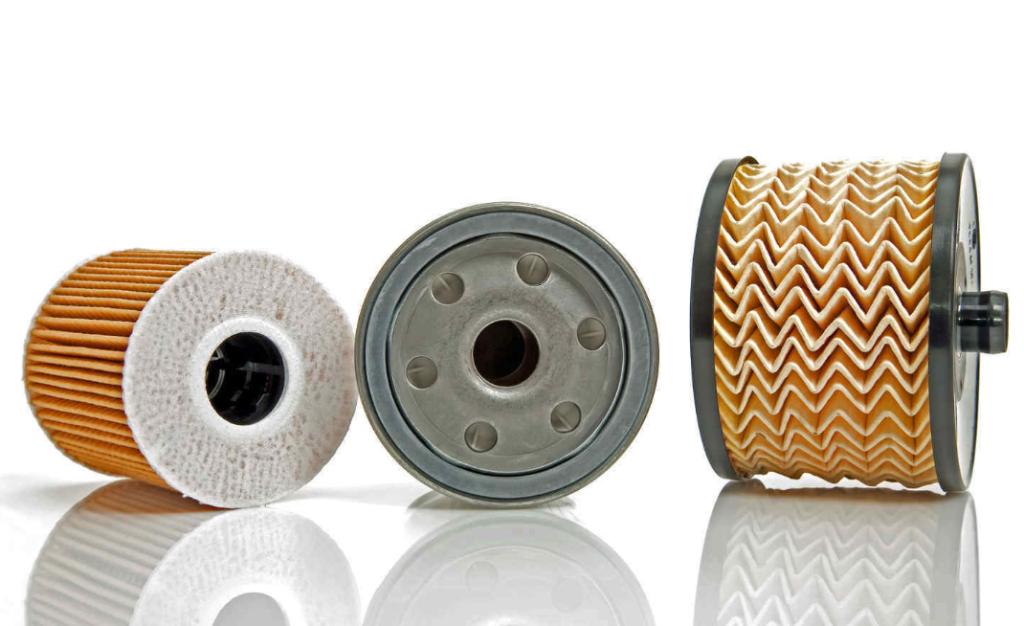
Traditional oil filtration has long been considered the standard approach to filter out contaminants from lubricants and hydraulic fluids. Such systems primarily rely on mechanical methods where oil passes through porous media which physically trap solid particles; alternative methods include using ultrafiltration. Common approaches:
- Strainers & Mesh Filters – Simple screens which capture large debris while allowing smaller particles to circulate freely;
- Depth Filters – Made of cellulose or synthetic fibers which trap contaminants as oil passes through multiple layers, while simultaneously filtering oil flow.
While these methods reduce visible contaminants, they have significant limitations:
- Partially Clean – Only remove solid particles, leaving behind water, sludge and dissolved byproducts of oxidation.
- High Maintenance – Filters quickly become clogged up, necessitating frequent replacements to avoid extended downtimes.
- No Oil Restoration – Oil can degrade over time since traditional filters cannot combat oxidation or chemical breakdown of its constituent parts.
Power generation, marine, or heavy manufacturing industries that depend on ultra-clean oil often find that traditional filtration fails. Without all contaminants being removed from equipment’s oils, wear, corrosion, and reduced efficiency are inevitable results of their continued presence in these environments.
This is where modern lubrication oil purifiers outperform conventional methods—offering complete purification and long-term cost savings.
What is Modern Lubrication Oil Purifier?
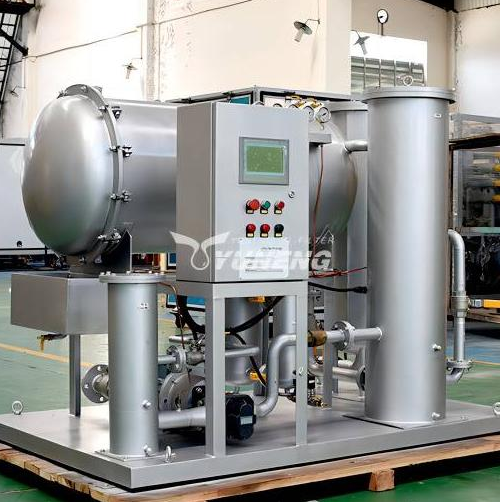
Modern lubrication oil purifiers differ significantly from basic filters in that they aim to restore oil quality rather than simply remove particles. They use centrifugal force, vacuum dehydration and electrostatic purification technologies in tandem to effectively purify all contaminants out of oil – including microscopic solids, liquid water contaminates as well as gases or chemical breakdown products that might otherwise remain.
Purifiers provide significant advantages due to their comprehensive cleaning ability. While traditional filters only capture large particles, purifiers actively recondition oil itself by eliminating oxidation byproducts and neutralizing acids – increasing usable life, decreasing maintenance costs, and improving operational efficiencies thereby. This results in longer equipment lifespan, reduced operational efficiencies costs, reduced operational maintenance expenses and enhanced operational efficiencies for businesses of any kind.
Modern systems are especially essential in industrial settings where minor oil contamination can have lasting ramifications, providing superior protection over traditional filtration methods while actually cutting long-term costs through oil reuse and reduced downtime.
Key Differences Between Lubrication Oil Purifiers and Traditional Filtration Methods
Assuming two identical filtration systems exist, one key distinction lies in their methods for eliminating contaminants. Traditional filters primarily rely on physical barriers like mesh screens or filter cartridges to trap solid particles, although this approach may work for basic needs such as water removal or chemical degradation mitigation. When it comes to purifiers for oil lubrication, however, the compromising performance of water, sludge, or chemical degradation products cannot always be effectively addressed by traditional filter solutions alone.
Lubrication oil purifiers have been developed specifically to offer more thorough cleansing processes than their predecessors, using techniques like vacuum dehydration and coalescing filters in combination with vacuum dehydration to target not just particulates but also water (both free and emulsified), gases such as carbon monoxide as well as varnish precursors.
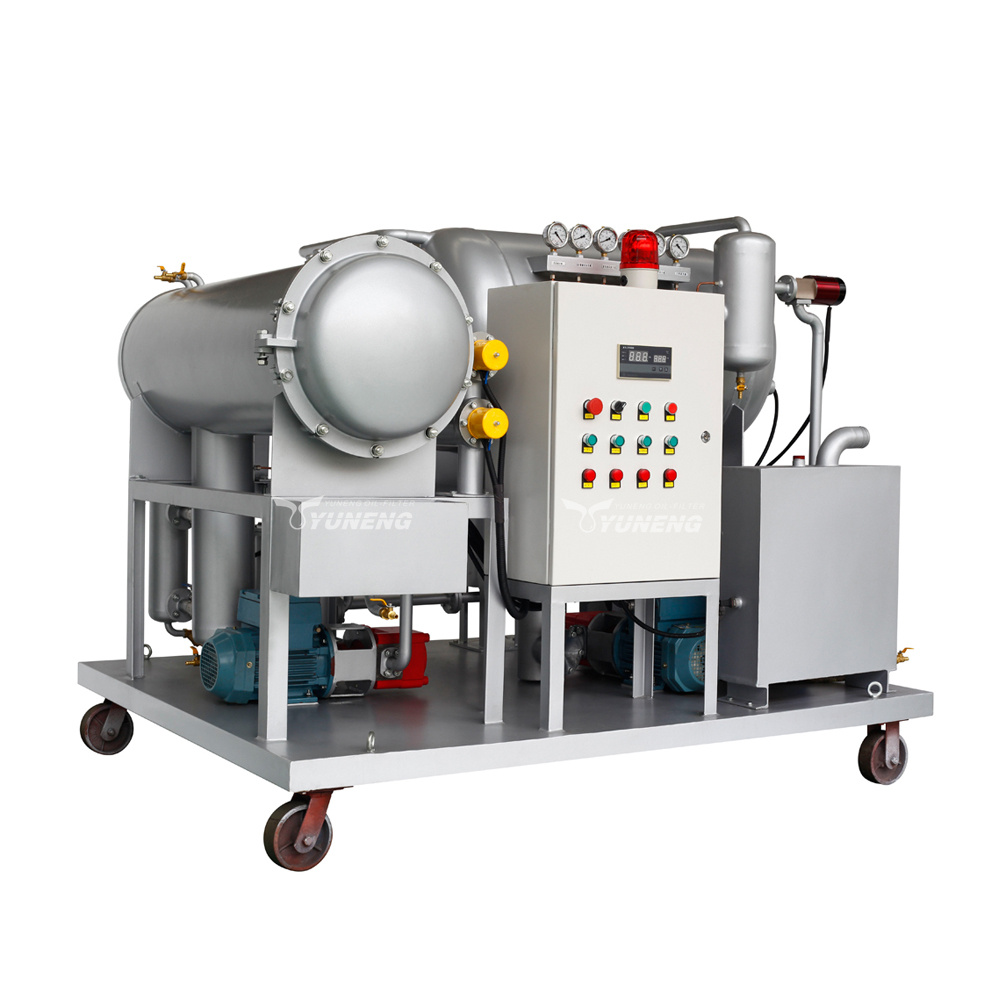
Oil purifiers also play an essential role in prolonging oil longevity and equipment maintenance costs over time by eliminating harmful contaminants that deteriorate machinery over time. By purifying oil regularly and replacing worn-out machinery sooner with fresh equipment that requires less frequent changes or downtime, we can result in lower maintenance costs overall over time.
To better understand the distinctions, here’s a side-by-side comparison:
| Feature | Traditional Filtration | Lubrication Oil Purifier |
| Contaminants Removed | Solid particles only | Solids, water, sludge, and dissolved contaminants |
| Technology Used | Mesh filters, cartridge filters | Vacuum dehydration, coalescence |
| Effectiveness on Water Removal | Limited | Highly effective |
| Maintenance Frequency | Frequent filter changes required | Less frequent maintenance due to extended service intervals |
| Oil Life Extension | Moderate | Significant extension of oil service life |
| Initial Cost | Lower | Higher, but cost-effective in the long term |
| Suitability for Harsh Environments | Limited | Excellent, especially in high-demand industrial settings |
This comparison clearly shows that while traditional filtration is suitable for basic needs, lubrication oil purifiers offer a far more comprehensive and efficient solution—especially in high-performance or critical applications.
Which is More Effective?
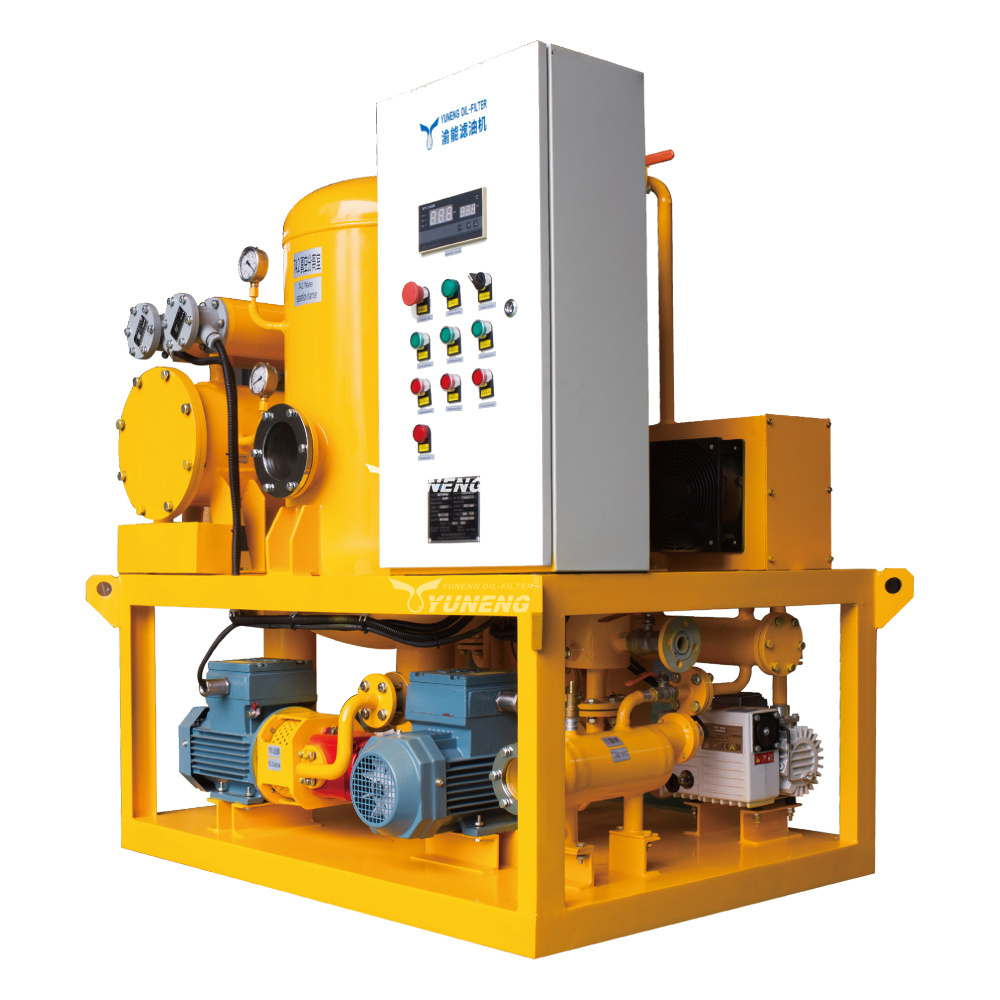
When evaluating lubrication oil purifiers versus traditional filtration, the superior choice becomes clear when examining real-world performance. Traditional filters serve a basic purpose – they capture visible contaminants and are relatively simple to operate. However, their limitations in contaminant removal range and oil restoration capability make them inadequate for demanding industrial environments where maximum equipment protection is crucial.
Modern oil purifiers demonstrate clear advantages in areas that count most:
- Purifiers Provide Comprehensive Contamination Removal: Purifiers can efficiently address impurities that traditional filters cannot, such as microscopic metal particles and acidic compounds in water and acidic compounds dissolved into oil, leaving your oil clean, dry, and meeting ISO cleanliness standards!
- Active Oil Reconditioning: Purifiers offer active oil reconditioning solutions by actively purifying it by eliminating oxidation byproducts and neutralizing acids accumulated over time, significantly prolonging service life by three to five times when compared with filters alone and leading to cost savings over the longer run.
- Long-Term Operational Benefits: Traditional filtration requires constant attention and filter replacements; modern purifiers operate with less involvement from their operators and automated systems to maintain consistent oil quality, thus minimizing unplanned downtime and protecting sensitive components against early wear and tear.
Oil purifiers offer superior protection and a measurable return on investment when applied in more intensive industrial settings, maintaining near-virgin oil quality to extend equipment longevity and improve uptime. According to data analyzed from several different studies conducted over several decades by the CGI Group.
Interested in Lubrication Oil Purifier?
If you’re searching for a trustworthy and effective lubrication oil purifier to improve the performance and lifecycle of your machinery, YUNENG stands out as a leading producer in this sector.
Chongqing Yuneng Oil-Filter Manufacturing Co., Ltd has over two decades of experience specializing in research, development and production of advanced oil purification systems. Their services span multiple applications such as transformer oil purifiers, turbine oil purifiers, engine oil purifiers and even lubrication oil purifiers.
Our lubrication oil purifiers are engineered to effectively eliminate contaminants like water, gases and solid particles from industrial oils like turbine oil, mechanical oil, hydraulic oil and cooler oil. Utilizing advanced technologies like vacuum dehydration and multi-stage filtration systems, they ensure high purification efficiency to extend both machinery service life as well as extend oil’s useful lifespan.
For more information on YUNENG’s lubrication oil purifiers and to explore how our solutions can benefit your operations, visit their official website: https://www.yunengoilpurifier.com/lubrication-oil-purifier.
Alternatively, you can contact them directly at +86-23-63225705 or via email at [email protected] for personalized assistance and quotations.

